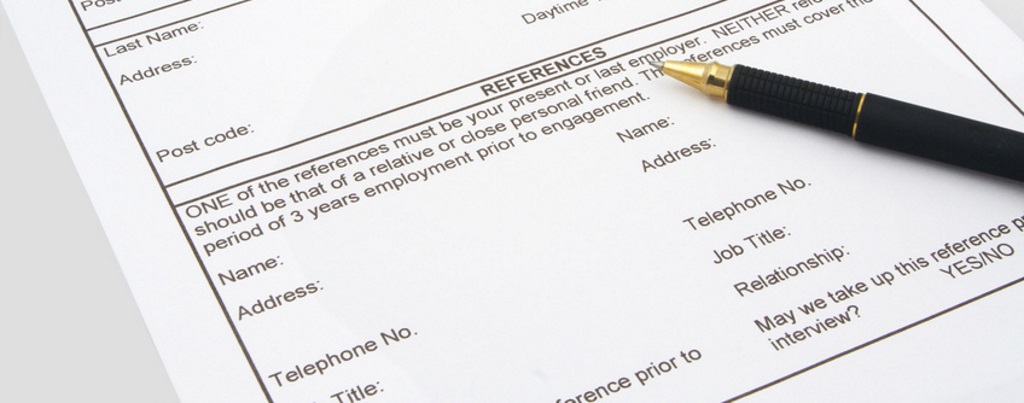We are often asked by our clients whether they need to give references for former employees. In most cases there is no issue, but where someone has left in difficult circumstances the decision may be more difficult. Here are some simple guidelines to follow.
Requesting a Reference for a New Employee
A reference can provide important information to a potential employer and we would nearly always recommend asking for references before employing a new member of staff. You can ask for a reference at any point in the recruitment process and we generally advise that job offers should be conditional on receiving satisfactory references.
When requesting a reference for a new employee, it is normal to ask for confirmation of facts such as job title, dates of employment, and number of sick days taken. You can also ask more detailed questions such the reason for leaving, details about skills/abilities and even questions regarding character and suitability for a role. Be aware that asking for too much information is likely to put the recipient off from answering.
If you don’t receive a reply to a reference request then you must decide whether to employ anyway, and if you do, we would always advise a 6-month probationary period to assess the employee’s suitability for the role.
Giving a Reference for a Former Employee
There is no obligation to provide a reference for a former employee, except in certain specific cases such as industries regulated by the Financial Services Authority, or if you are bound by a settlement agreement to provide a reference. If you choose to provide a reference you can decide how much information to give.
If you choose to give a reference then it must be factually accurate and fair. We would generally recommend keeping a reference short, factual and free of subjective opinions. We would particularly avoid giving an opinion on whether someone is suitable for a role, as you are being asked to judge both the person and the role itself, probably without full information.
The reason for keeping references short, factual and fair is that both the employee and future employer may be entitled to sue you for damages if they suffer loss due to a misleading or inaccurate reference. The employee is entitled to obtain a copy of any references given by making a request under Data Protection legislation, so you should have this in the back of your mind when you are writing a reference.
References in Redundancy or Termination of Employment
Where an employee is dismissed or made redundant and a Settlement Agreement or COT3 is signed then it is common to agree a standard wording for future references in the contract. This will prevent future difficulties, particularly further down the line when memories of the events may have faded.
If you have any questions regarding requesting or writing a reference then our expert employment solicitors would be happy to arrange a free initial consultation.
The Backhouse Solicitors Team
Tel: 01245 893400
Email: info@backhouse-solicitors.co.uk
Visit: 17 Duke Street, Chelmsford, Essex CM1 1JU
Or send us a message through the Contact Us page on this website






